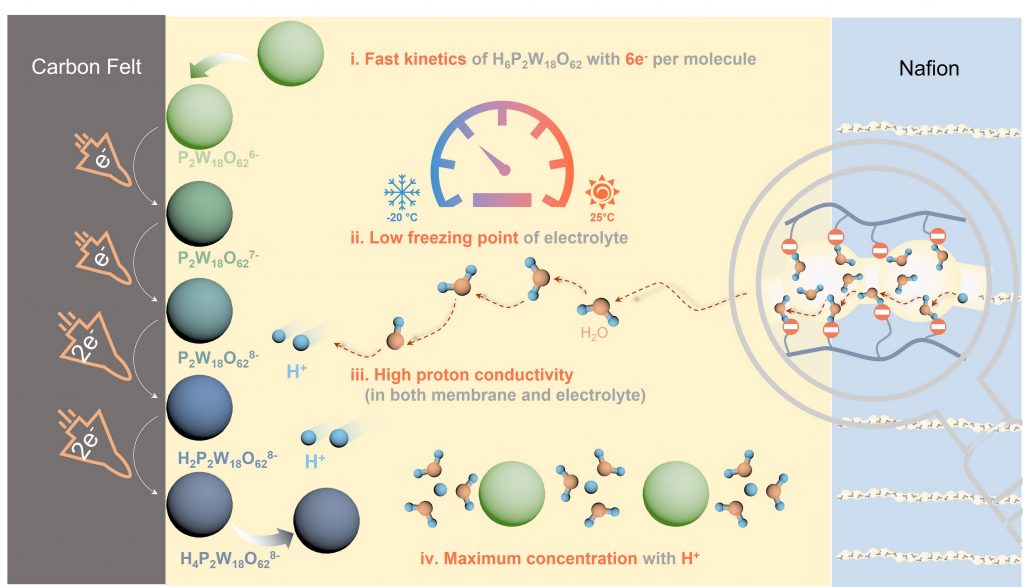A research team led by Professor Yi-Chun Lu has successfully developed a new electrolyte that enables high power, long life flow battery applications at both room temperature and low temperatures down to –20℃. The new flow battery achieves a high power density of 282.4 mW cm-2 and stability over 800 cycles (more than 1,200 hours) without decay at –20℃. This work enables high power, long life redox flow batteries to be used in regions with cold weather or severe weather fluctuations, a significant step towards the practical application of redox flow batteries for grid-scale storage of renewable energy. The breakthrough has been recently published in Nature Energy, one of the world’s leading scientific journals.
Professor Lu said, “This work opens extensive opportunities to develop large-scale energy storage for extreme cold weather regions that was not possible before. The discovery also holds significant potential for the development of high power, stable redox batteries to come into play. The next important step is large-scale prototype demonstration for further development towards commercialisation.”
The full research paper can be found at: https://doi.org/10.1038/s41560-022-01011-y

The prototype of the HPOM based redox flow batteries at 25℃ (left) and –20℃ (middle) and in the refrigerator (right). Water (H2O) is provided for reference.

Design principles of HPOM based redox flow batteries for low-temperature applications. HPOM electrolyte exhibits i) multi-electron reactions with fast redox kinetics; ii) a low freezing point down to –35℃; iii) high ionic conductivity; iv) high solubility of redox active materials.
CUHK Press Release: Click here!